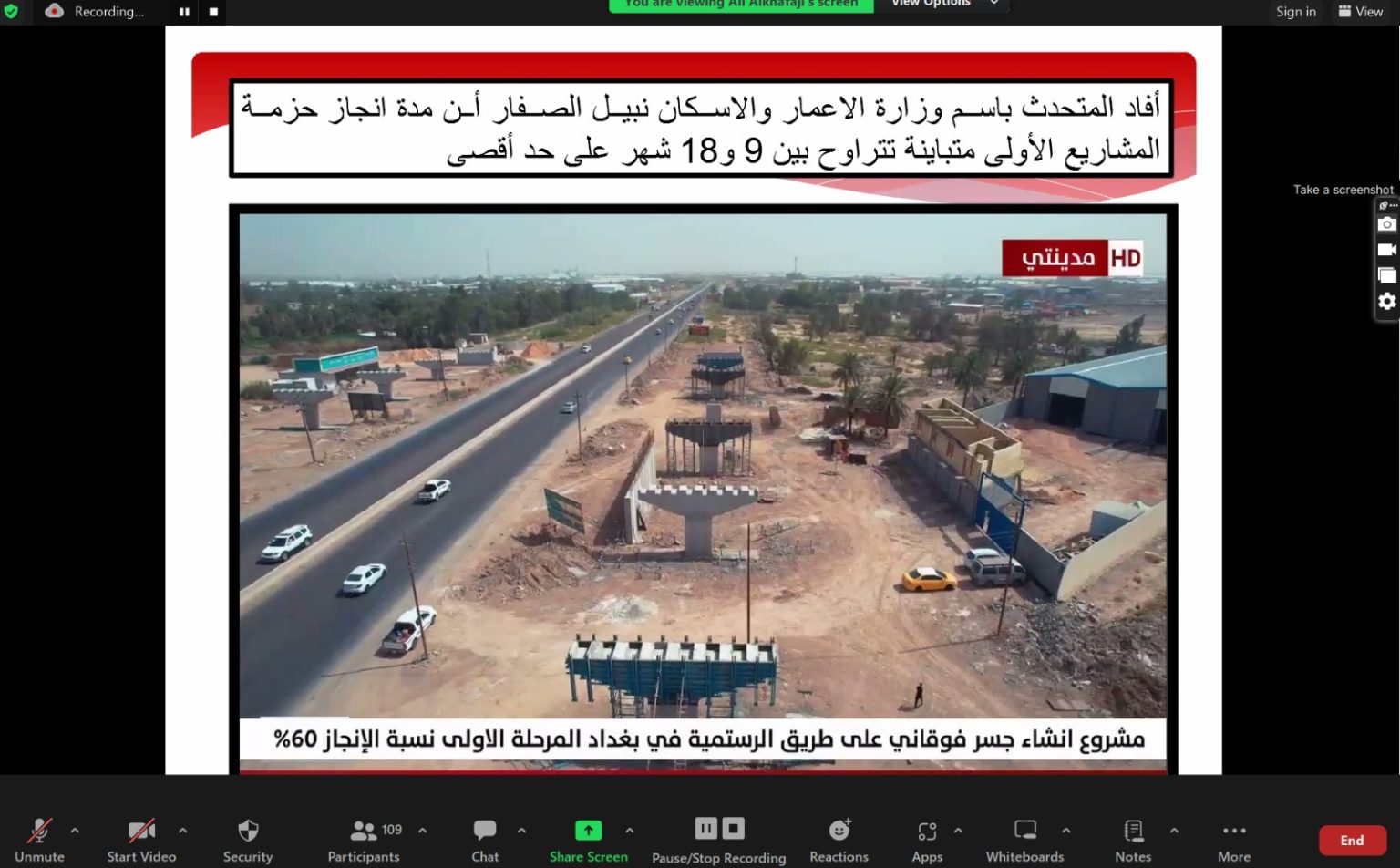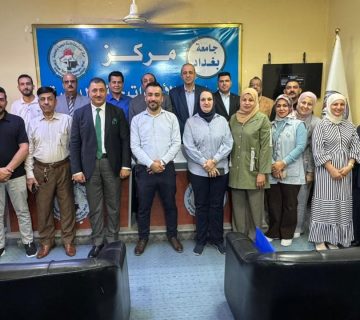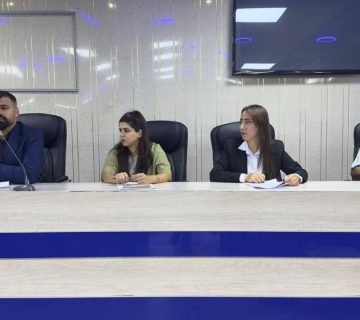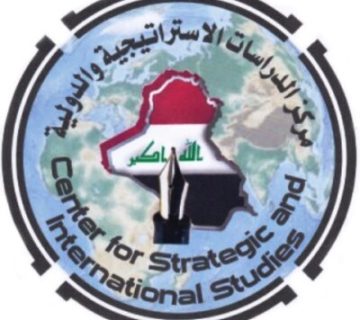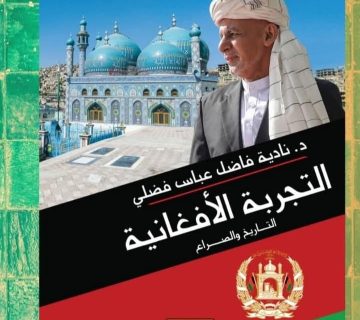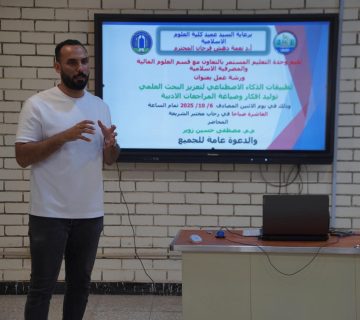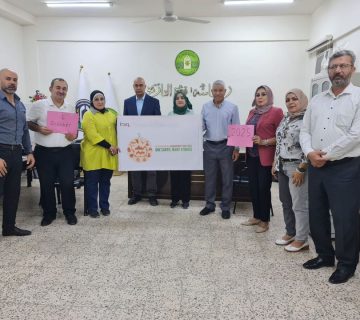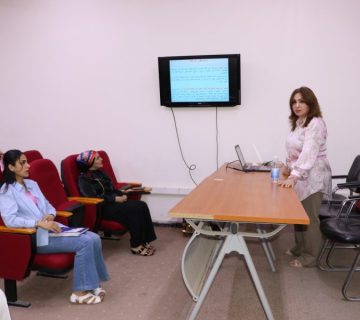The Ibn Sina Center for E-Learning at the University of Baghdad organized a scientific symposium titled “The Traffic Crisis and Its Impact on Sustainable Development and the Effects of Changing Official Working Hours.” The symposium featured presentations by Engineer Ali Saif Al-Din Obeid and Translator Balqis Haqqi.
The event aimed to shed light on the traffic crisis and its impact on sustainable development, considering its economic, social, and environmental dimensions. Translator Balqis Haqqi highlighted the causes of the traffic crisis, attributing them to factors such as population density, road organization, and individuals’ adherence to traffic regulations, among others.
Engineer Ali Saif Al-Din Obeid explained the specific causes of the traffic crisis in Baghdad, including the lack of use of public transportation, shortage of parking spaces, and poor management of the road network, among others. He also discussed current projects aimed at alleviating traffic congestion in Baghdad, highlighting the positive outcomes these initiatives are expected to bring.
He pointed out the changes in official working hours that accompanied the campaign to alleviate traffic congestion, conveying the appeals of state employees and students who were negatively affected by these changes. Some mentioned difficulties in balancing family demands with the new work schedules, noting that the new timing is unsuitable for students, who start their school day feeling exhausted. Additionally, students who need to work while studying may be forced to leave their studies. Other challenges resulting from these changes were also highlighted.
The researchers recommended conducting an analytical study of the traffic crisis, focusing on the annual increase in the number of vehicles and the timeline for road development projects. They emphasized the need to expedite the construction of the subway system due to its significant impact on reducing the number of buses, cars, and taxis, and encouraging the use of public transportation. Additionally, they suggested examining the pros and cons of relocating some government institutions and ministries to areas outside the congested parts of the capital (the outskirts).


